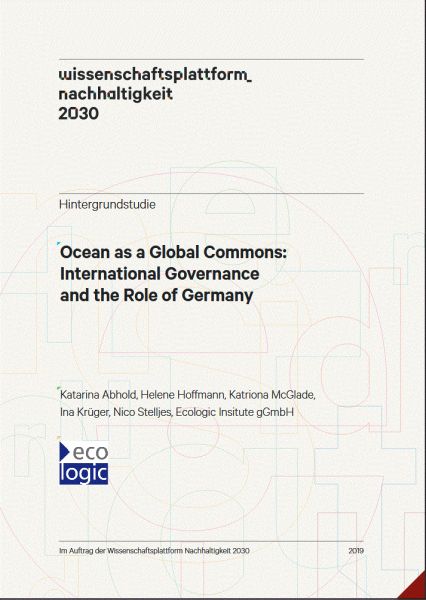| Fischerei an der Ostseeküste
|© Ecologic Institut
Oceans as a Global Commons: International Governance and the Role of Germany
- Project
- Duration
-
-
The aim of the project was to develop a study "Ocean as a Global Commons: International Governance and the Role of Germany" at the request of the Institute for Advanced Sustainability Studies (IASS) as part of the Science Platform Sustainability 2030 (Wissenschaftsplattform Nachhaltigkeit 2030). The study provides an overview of the different governance mechanisms in regard to the Global Commons "Oceans" area. The study addresses the following four research areas:
- Oceans: commons function for global sustainability and key challenges,
- Global oceans governance and the Agenda 2030,
- Contributions "with" and "by" Germany,
- Key transformation processes for strengthening the sustainability architecture.
The United Nations 2030 Agenda for Sustainable Development builds on the Millennium Development Goals and the decisions of the United Nations Conference on Sustainable Development in Rio de Janeiro in 2012. It defines 17 Sustainability Goals (SDGs) for anchoring sustainability as a guiding principle in key areas of life, politics and the economy.
Achieving the SDGs requires intensive global and national cooperation. In particular, Goal 14 'Conserve and Sustainably Use the Oceans, Seas and Marine Resources for Sustainable Development' can only be achieved through international processes that must be anchored by national processes, as oceans as 'common goods' extend beyond national borders. In Germany, the implementation of the 2030 Agenda lies with the Federal Ministry for Economic Cooperation and Development (BMZ) and Federal Minister for the Environment, Nature Conservation, and Nuclear Safety (BMU). The German Council for Sustainable Development is actively involved in the implementation of the goals and the German Sustainability Strategy concretises the 17 goals of the Agenda 2030 for Germany.




